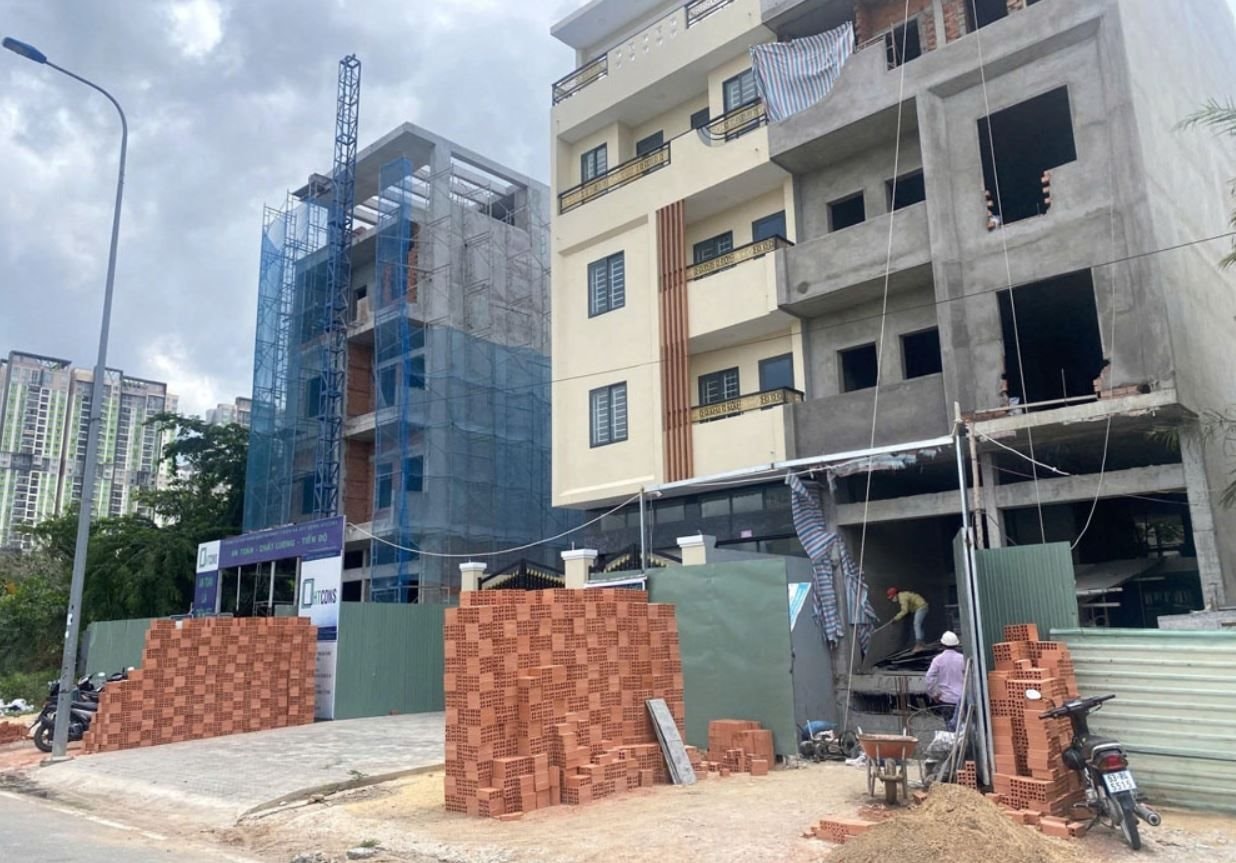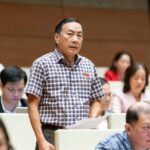
Proposed Amendments to Vietnam’s Construction Law: Easing Building Permit Requirements for Urban Homes
On November 14th, during a discussion on the revised Construction Law, Dinh Ngoc Minh, a member of the Economic and Financial Committee, proposed exempting urban residential buildings under seven stories from requiring construction permits. This would expand the current draft’s exemption, which only applies to rural areas.
The government’s draft law aims to streamline permit procedures and broaden exemptions. Currently, only rural residences (single-family homes under seven stories) and renovation projects not affecting structural integrity are exempt.
Minh argued the draft doesn’t sufficiently expand exemptions. He suggested adding urban single-family homes under seven stories, with the Ministry of Construction establishing detailed standards.
Instead of individual permits for urban households, Minh proposed holding consulting firms legally responsible. This, he said, would save citizens time and money.
Ta Van Ha, Deputy Chair of the Culture and Social Affairs Committee, agreed that construction permits are a major hurdle in administrative reform. He advocated for bold simplification and stricter penalties for lax oversight by local authorities, especially at the commune level.
Currently, permit processing times are 15 days for single-family homes, 20 days for non-residential buildings, and 30 days for Class I and II projects, upon receipt of complete applications.
Concerns Over Post-Construction Inspection Challenges
Nguyen Thi Viet Nga, Deputy Head of the Hai Phong Delegation, expressed concern about commune-level officials’ lack of construction expertise, as most hold multiple roles.
She worried they wouldn’t have the capacity to effectively monitor and identify violations under the two-tier local government system.
Viet Nga pointed to widespread unauthorized construction, encroachment on sidewalks and public land, exceeding height limits, and unauthorized changes in building use. “Many violations go undetected until near completion or after finishing,” she noted.
She proposed strengthening post-construction inspection mechanisms, holding commune People’s Committees and their leaders accountable for early detection and handling of violations.
Pham Van Hoa of the Dong Thap Lawyers Association agreed post-construction inspection is necessary but emphasized local authorities’ ongoing responsibility during construction. He cited a case in Hai Phong where a house was mistakenly built on someone else’s land, which could have been prevented with proper on-site land verification by local officials.
Hoa suggested phased post-construction inspections during construction to minimize damage to citizens and state resources.
Construction Minister Tran Hong Minh responded that the revised law aims to simplify procedures, potentially eliminating permits while requiring design consultations. Citizens would commit to complying with safety regulations for structure, fire prevention, and utilities at the commune level.
Unveiling the Truth: Land Officers’ Role in Preventing Unauthorized Construction on Others’ Property
“The incident in Hai Phong, where a house was mistakenly built on someone else’s land due to incorrect guidance from an intermediary, highlights a critical issue. If local authorities had conducted proper pre-inspections and land officers had accurately designated the construction site for the homeowner, this error could have been entirely avoided,” stated Delegate Pham Van Hoa.
Concerns Arise as Homeowners May Still Require Ownership Certificates for Construction Permit Exemptions
Many residents face challenges when applying for property ownership certificates after completing their constructions, as they lack the necessary building permits.




















